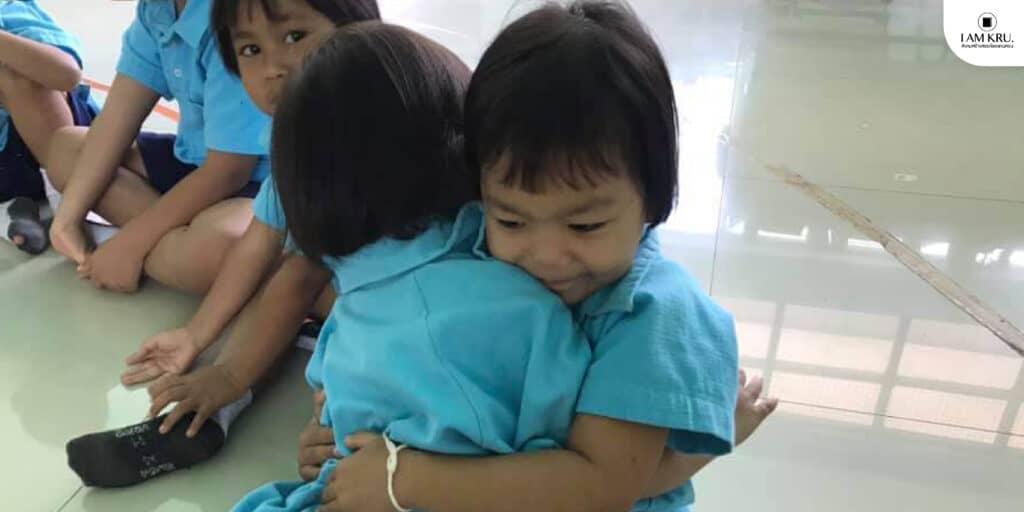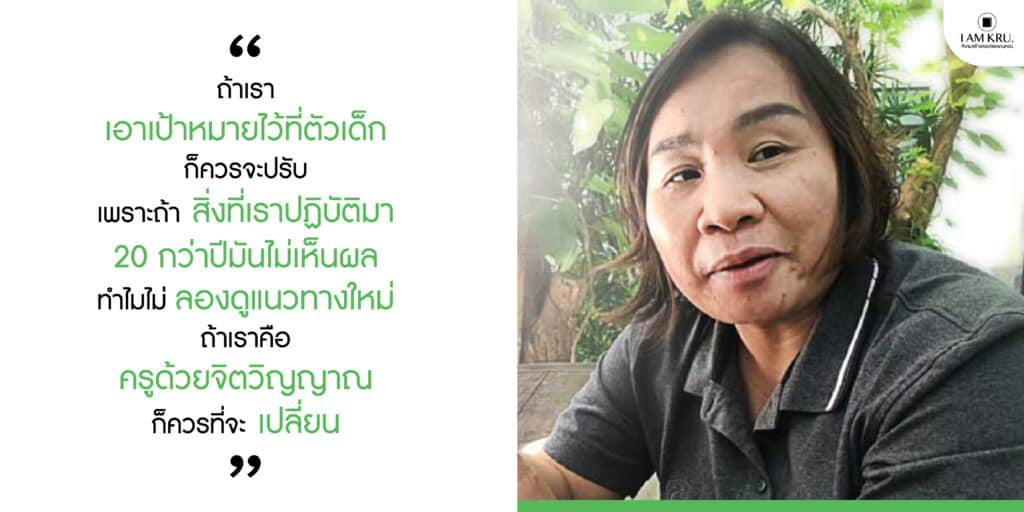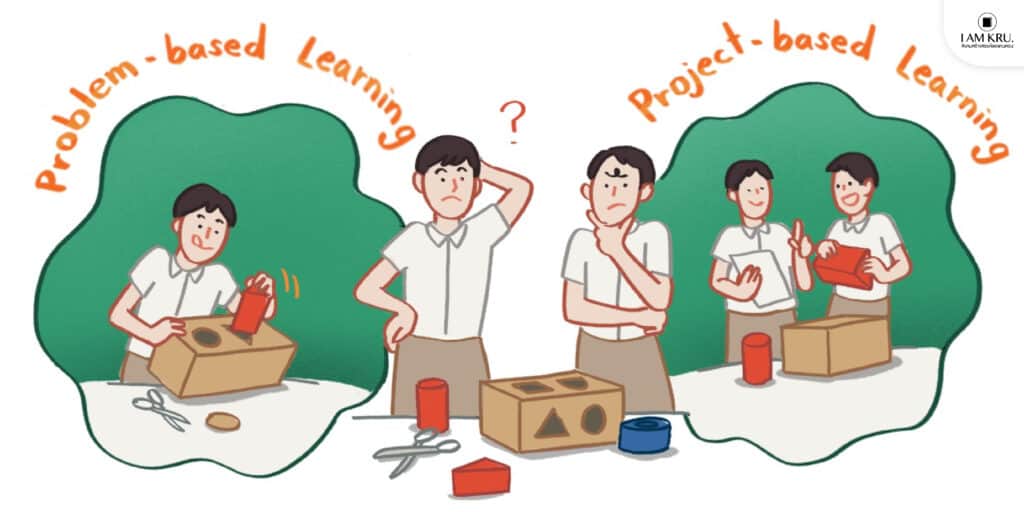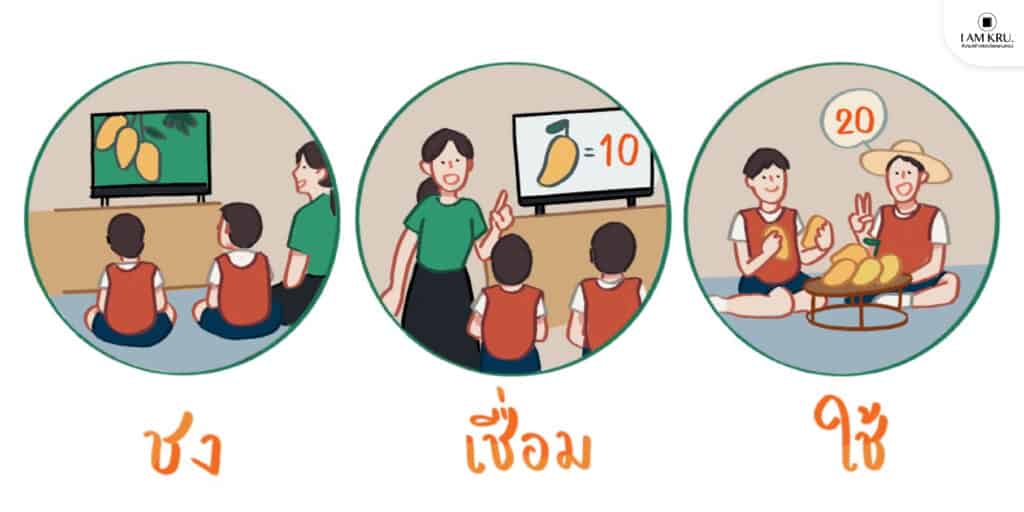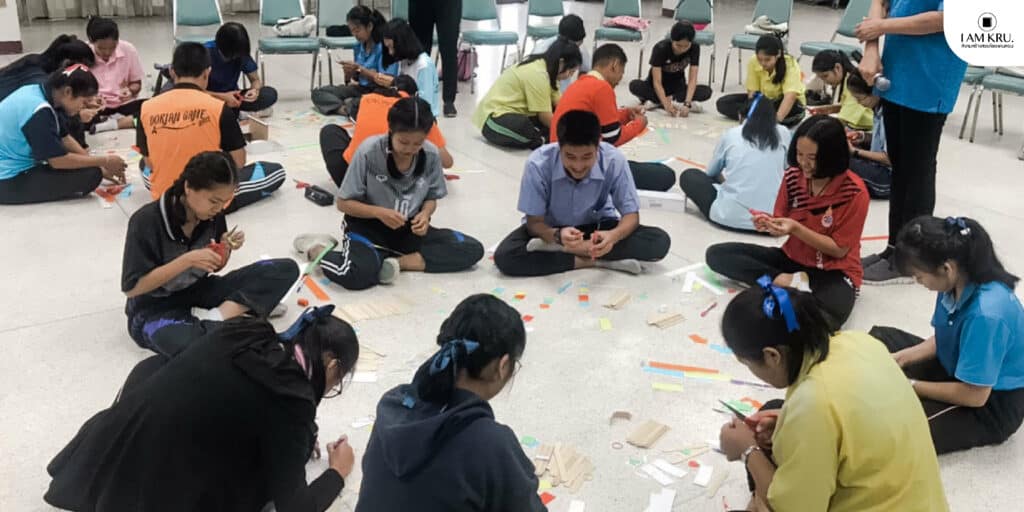In an era where schools and educators are confronted with loss, the new challenge society faces is profound: When our children feel life is monotonous, when stress leaves them feeling trapped and without an exit, when they’re engulfed in sorrow yet their guardians remain unaware – who will guide them to a solution
“No child wants to be depressed.”
The goal of our discussion is to share experiences that many teachers encounter regarding the increasing issues of depression among students under their care. This dialogue aims to find methods to address these issues and collaboratively discover solutions to reduce and prevent the tragic losses that could ensue.
Dr. Pop, a psychiatrist, shared insights from the COVID-19 era, noting a significant rise in stress-related and mental health issues among children and adolescents. Another worrying trend, as experienced by Professor Panom, was that while medical students typically faced stress during the latter part of their studies, it’s now becoming more common to see these mental health issues manifest from the onset of their medical education.
Depression, from a medical standpoint, isn’t just triggered by external environmental factors. It can also arise from internal elements, such as neurotransmitter dysfunctions, which are crucial in controlling bodily functions and can lead to rapid emotional changes. Or it could stem from intensely traumatic experiences that deeply impact one’s feelings, leading to depressive states. Addressing these symptoms early can lead to timely and effective treatment. However, the lack of understanding of depression’s dynamics by those around the sufferer can lead to worsening behaviors and a decline in the patient’s condition. If all parties strive to understand and acknowledge the problem, long-term solutions can be achieved.
Teacher Su-jai says, “Parents are those we care about but can’t always share with.”
“It’s Just a Small Thing”
People perceive problems differently; what may seem minor to one person could be significant to another. The ‘small’ issues of a child from an adult’s perspective may seem like“just a small thing.”These three words can undermine a child’s feelings, shutting down their willingness to share their problems with parents, teachers, or anyone who might listen.
“A Matter Close to Home”
Some parents still fail to grasp their children’s mental health issues. They hardly notice when some kids choose to communicate problems through their behavior, such as being withdrawn, speaking less, losing focus in class, or becoming aggressive. At first glance, these behaviors may seem like attention-seeking, but they could actually be a child’s way of signaling a cry for help, saying, “Pay attention to me.” If adults promptly recognize these signals and face them with open-hearted discussion without judgment, they can significantly reduce problems and prevent loss.
Another pressing issue is parents’ attitudes towards depression. Sometimes, when teachers and doctors notice a child exhibiting symptoms, they promptly inform the parents to seek treatment. However, the parents may question, “How can they be sick?” or express disbelief, sometimes even assuming substance abuse. Some parents’ lack of cooperation and denial only exacerbates the problem.
How Can We Solve These Issues?
These problems do not occur solely in schools, so solutions cannot be achieved by teachers alone. Cooperation from everyone involved in a child’s life is crucial, especially from parents, who are the key to a sustainable resolution. This starts with accepting and understanding the issues without prejudice and collaborating with teachers, who sometimes act as second parents, psychiatrists, and especially classmates, who can significantly help reduce these issues.
Equipping Children with Emotional Armor
Parents play a crucial role in building children’s emotional resilience. Beyond teaching, another critical role for teachers is to bolster children’s emotional strength. The best way to arm them is to teach them to manage their emotions. Let children understand that we can’t change others’ thoughts, attitudes, or feelings, but we can manage ourselves — ‘change starts with us.’ This approach not only builds emotional management skills but also provides children with experiences to learn about diversity and prepare to face challenges in thinking, feeling, and relationships. These soft skills are invaluable for their future, and if a problem is too much to handle alone, children should trust that teachers, family, friends, or others are ready to help.
Teacher Kaew remarks, “The power that keeps us fighting for the children is the smiles, the expressions, and the sparkle in the children’s eyes when they feel at ease and free from suffering.”
Prioritizing Guidance Counselors and Enhancing Teachers’ Professional Skills
The Ministry and educational institutions must have policies that support and enhance teachers’ skills. Problems identified in discussions reveal that some schools lack guidance counselors due to central policies, budget constraints, and difficulty in increasing the teacher workforce. In some schools, the time allocated for guidance sessions has decreased, coupled with the academic responsibilities assigned by administrators, leaving little to no time for full-fledged counseling for students. Moreover, the COVID-19 pandemic exacerbated the isolation from the external community and schools, depriving children of life skills education. As COVID-19 subsides and children return to school, the absence of guidance counselors — key figures in providing advice — has left many children to face problems alone.
To address this,‘Teacher Su-jai’has proposed a strategy to reintegrate psychologists into the youth community, transforming guidance counselors into counseling psychologists as a tool to assist children. This deep skill enables teachers to communicate and counsel students effectively, especially understanding them (the children) on their depressive days.
Strangers Saving Lives
There are many cases where strangers have become lifesavers for children in severe depression, with suicidal thoughts. How have these strangers become heroes to these children? An interesting example was shared in the discussion.
‘Teacher Bow’ recounted an incident where someone outside of a child’s family stepped in to help. One day, Teacher Kaew noticed a student’s farewell status on Facebook. As the homeroom teacher, they tried to contact and calm the student, assuring them that they could talk to a teacher who was ready to help solve their problems. However, Teacher Bow did not know where to find the child. With the help of parents in a Line group volunteering to drive and check, the child was safely returned to the care of their guardians. This incident shows that attentiveness and observation are simple ways that can save a life in time.
Beyond the immediate problems that teachers must solve, there are structural and cultural issues that cannot be quickly remedied. This discussion forum wishes for teachers to become the voice that reflects problems to initiate solutions. From the teachers’ perspective, they wish to solve problems or change directions in which policies support their work, driving the teachers’ power further. This platform aims to reflect and transmit policies that make teachers’ work easier and more effective. Teachers should not face problems alone; many forces are ready to join hands and solve issues sustainably.
Educators and interested parties can follow other educational topics of interest, such as classroom activities, teaching methods, and stories of teacher groups from various areas on the website and the I AM KRU page.
573
Writer

- Admin I AM KRU.
